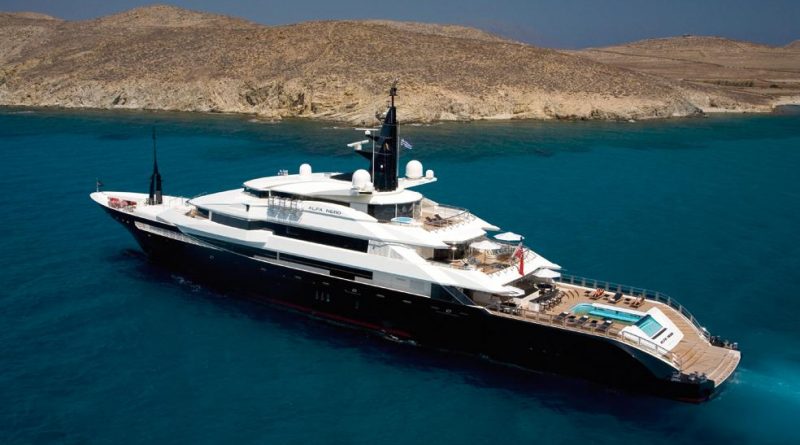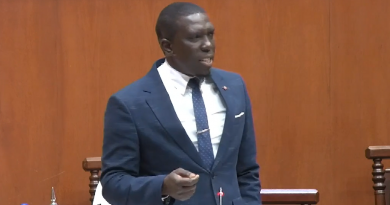Cabinet to indemnify Alfa Nero buyer against future liabilities; but attorney files injunction to allow sale to next-highest bidder
In what appears to be desperation to sell the Alfa Nero superyacht –
and utilize the money to settle a number of debts – the Cabinet says
it is willing to assume all future legal liabilities associated with the
sale of the vessel.
The vessel – which had been seized and acquired by the Browne
Administration in May – was sold during a June 16 auction to former
Google CEO and software engineer Eric Schmidt.
Since then, however, there have been several court challenges to the
government’s ownership of the yacht and even of its fittings. One
challenge reportedly comes from the daughter of Russian oligarch
Andrey Guryev.
According to this week’s Cabinet Notes, on June 30, the High Court
dismissed the request for an injunction that was filed by a Russian
who claims ownership of the vessel.
This, the Notes say, prompted a Cabinet decision to “provide the
purchaser with a guarantee against future liabilities and to proceed
with the consummation of the sale.”
The Executive is afraid that any further delay might frustrate the
buyer – Schmidt – and says its decision “will bring an end to the
wasteful and frivolous litigation by the Russian citizen.”
Last week, the Cabinet had announced that payment for the Alfa
Nero had been delayed because of the pending court cases. It added
that Schmidt had been advised by his lawyers not to make payment
until the matters had been resolved.
Payment to the Treasury had been due by Tuesday, June 27, which
marked the seven-business-days deadline. Included in the sales
agreement was the condition that the failure to pay within the
timeline would allow the vessel to be sold to the second-highest
bidder.
The vessel had been priced to sell at US$60 million. Schmidt’s bid of
US$67.6 million was the highest offer, with the second being US$66
million.
Earlier this week, an injunction reportedly was filed to prevent the
Government from selling the yacht to Schmidt – on the ground that
he had not honoured the seven-day requirement for payment – and
that the second-highest bidder be allowed to purchase the vessel.
It is alleged that the attorney filing the injunction is a relative of a
senior Cabinet minister.
Meanwhile, a finance professional says the Cabinet’s indemnity
proposal is ludicrous.
While he admits he is no expert in law or maritime matters, he says
the first question he would ask is: “How airtight is the law under
which the yacht was seized?”
He says it is possible that a court could rule that the amendments to
the Port Authority Act are defective. This would place the country in
further jeopardy, he notes, since the prior owner could then sue
Antigua and Barbuda for damages.
In such a case, the Government’s guarantee would have indemnified
the purchaser against any claims – thus making the taxpayers of
Antigua and Barbuda liable.
Further, he says, such a scenario could potentially cause the country
to pay the previous owner “the current market value, which is much
higher than the forced-sale value.”
Accordingly, the Government might be faced with a bill that could be
as much as twice what it received from the sale.
For the taxpayers’ sake, he says, he is hoping the Government has
ensured that the law is airtight.
At this point, sources claim there are at least six lawsuits involving
the Alfa Nero.




